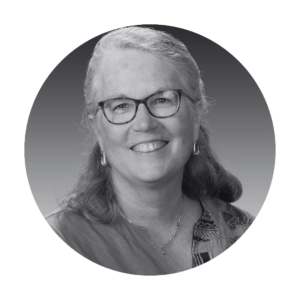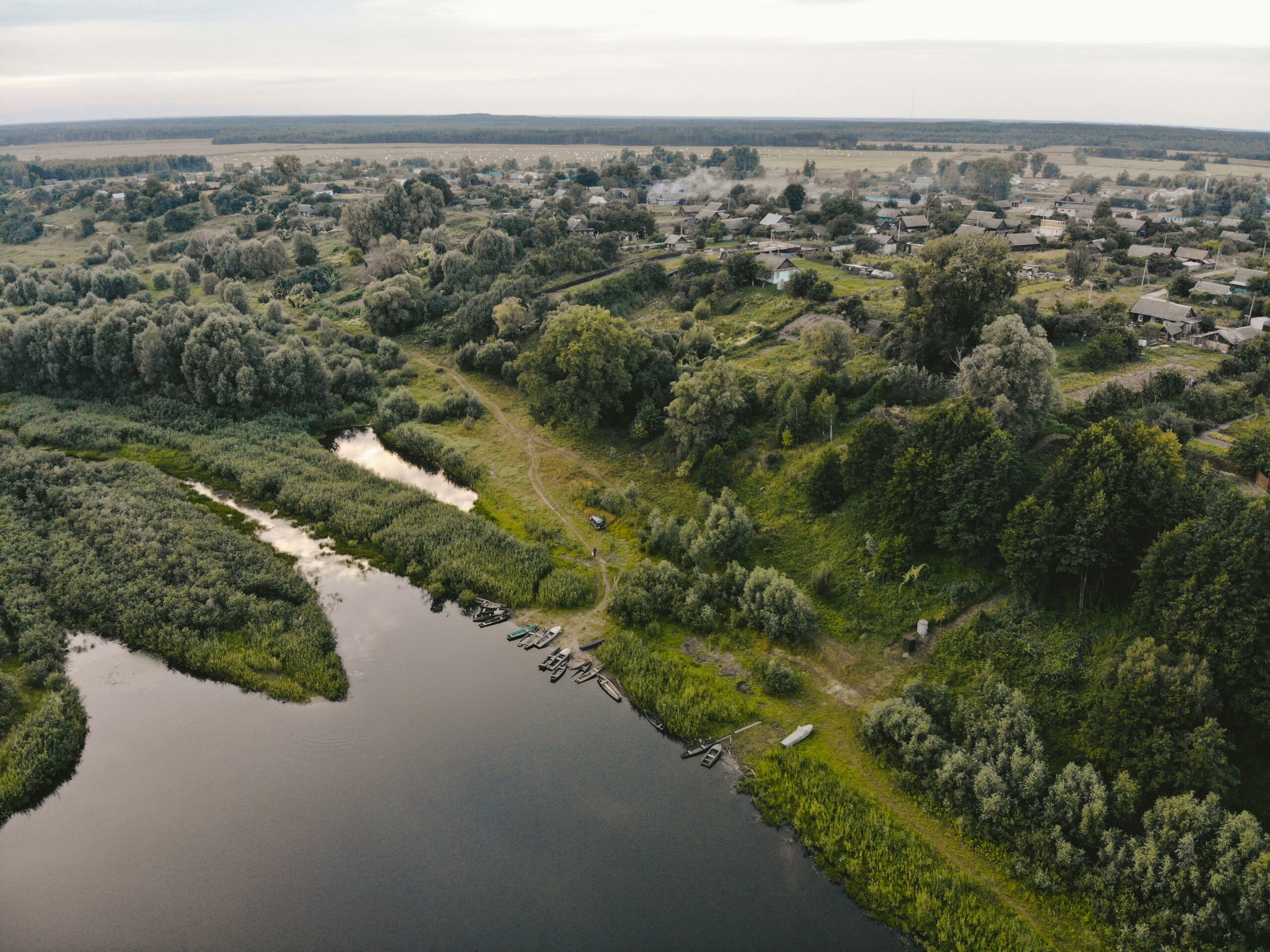STEPHANIE HUBACH | CONTRIBUTOR
Welcome to Part 2 of “The River Approach” to Women’s Ministries. . .
In Part 1, we discussed how flying over Scripture from an aerial view is akin to the “river approach” flying into Reagan International Airport in Washington DC. When the pilot navigates along the Potomac River, it provides a stunning, overarching, panoramic picture of the whole Washington Mall and all of its monuments. A biblical theology approach to Scripture allows us to see how Scripture connects as a whole as God’s Grand Story.
The Creation, Fall, Redemption, and Consummation (or New Creation) framework connects in a vital way with how we conduct women’s ministries in the local church. On a very practical level, this same framework ties directly to essential questions we encounter in walking alongside women. As a refresher, here is the chart that was also presented in Part 1:

Who am I? When we examine the Scriptures, we can see that Creation provides us with the core of human created identity. We were forged in creation as image bearers of the Living God. We were made to reflect his character into the world, and we are stamped with an imprint that we belong to the Creator King. In application to women’s ministries, this informs how we view our own value as women and how we are to view and treat others in our lives. As image-bearers of the Living God we are to engage one another with honor and respect.
Why is life so hard? When we examine the Scriptures, we can see that the Fall of humanity helps us to understand the nature of sin and suffering in this life. It doesn’t make suffering easier. It doesn’t even help sin to make sense, because sin is a parasite on God’s good creation—it is absurd. The Fall of humanity in the Garden of Eden, is when our First Parents’ unwillingness to take God at his word, and their grasping to hold power like he does, brought unfathomable destruction into the created order. Theologians describe the impact of the Fall as universal, pervasive, and alienating.
- Universal, in the sense that it affects everything and everybody.
- Pervasive, in the sense that it affects every aspect of our individual personhood (physical, psychological, intellectual, spiritual, and social).
- Alienating, in that it disrupts our relationships with God (our biggest problem), self, others, and nature.
Practically applied in our relationships with one another, an understanding of the Fall helps us to not be surprised by actual sin when we encounter it, nor to be surprised by sin’s effects on the world in every sphere of life. It also allows us to mourn the effects of sin on the world—which frees us to grieve with those who grieve, and is what motivates us to be agents of Christ’s restorative power in every arena of life.
How can anything get better? The good news of the gospel doesn’t make sense unless we’ve got a context for what we were made for, and an honest acknowledgement of the true reasons why life is so hard. But the gospel is the good news of the coming of Christ’s kingdom—his saving reign breaking through in this world through his saving work completed on Calvary and confirmed by his victorious resurrection. He is a Living and Reigning King whose reign is here in part, and yet not here in all of its fullness yet.
When we believe on and rest in Christ’s finished work for us, we experience all of the benefits he has earned for us! He paid for the penalty of sin and also released us from the power of sin. We have the free gift of salvation by grace alone, the indwelling of the Spirit, the empowering of the Spirit unto a progressively changed life, the gift of union with Christ himself—being vitally connected to him—and also to his entire body of believers. And the list goes on and on.
As we do life together in the covenant community of Christians in which he has located us, we experience the richness of these gifts of grace—together. It is truly a beautiful thing. And it all still takes place in the midst of the hard stuff of life. His kingdom is already-not-yet. So we truly experience the benefits and blessings of his kingdom reign within us, the power and purpose of his kingdom coming through our faithful service, and the beauty of belonging to his body—the church. And yet. Already-not-yet. We are called to walk together in the midst of the hard things: things like deeply rooted sin patterns, traumatic experiences, and broken relationships. And we are called to walk them both: the beautiful blessings and the bitter-tasting brokenness.
Where does our true hope lie?
If we are honest, often, we want to experience the beautiful blessings of salvation while “taking a pass” on walking alongside women who are deep in the bitter-tasting brokenness that so painfully invades our lives. But we are not “given a pass.” Instead, we need to remember that the good news of the gospel provides us with past, present, and future benefits. Christ’s work of salvation is completed for us. The Holy Spirit indwells us now and is doing an ongoing work of transformation. And—one day—all things will be made new. All. Things. Will. Be. Made. New.
This consummation of Christ’s kingdom (when it all comes together at his second coming) will usher in the wonder of the New Creation—the new heavens and the new earth of which Revelation speaks. It is a True Hope for a place where we dwell forever in perfect communion with God himself and in perfect community with each other. It will be unable to be reached by or ever infected with the ravages of sin that plague us in this life. All. Things. New.
So even as we do life together in the already-not-yet-ness of where we live in God’s big story today—we are called to stay close to each other while we point each other—with certainty—to the True Hope we have for all eternity. All. Things. New. This True Hope applies not only to what is outside of us but to what is within us—in such a way that in the New Creation we are both completely new and more fully ourselves than we ever imagined—and eternally praising King Jesus for that. Knowing where our True Hope lies enables us to encourage each other not to just survive (or to hold our breath until we die) but to walk the walk of faith together as faithful agents of Christ’s kingdom—until he comes again. Maranatha!
So, given the tragic airline accidents that have occurred in recent months, if you don’t feel safe flying in a commercial airline right now, that’s okay. Just don’t neglect the aerial view—the “river approach” to the Scriptures as you navigate women’s ministries in your local church. For it is amazing how it can enable us to apply God’s word in a relational context that addresses these life’s big questions in such a way that we are driven to Jesus and the power and hope of his gospel—together.
Photo by Nick Herasimenka on Unsplash

Stephanie Hubach
Stephanie O. Hubach is a Research Fellow in Disability Ministries in affiliation with Covenant Theological Seminary. From 2007-2016 she served as the Founding Director of Mission to North America’s Special Needs Ministries (Presbyterian Church in America). She is also a founding member of the Lancaster Christian Council on Disability (LCCD). Steph is the author of Parenting & Disabilities: Abiding in God’s Presence (P&R Publishing, 2021), Same Lake, Different Boat: Coming Alongside People Touched by Disability (P&R Publishing, 2006, Revised & Expanded Edition 2020), and All Things Possible: Calling Your Church Leadership to Disability Ministry (Joni and Friends, 2007). She has been published in ByFaith magazine, Focus on the Family magazine, and Breakpoint online magazine and produced a Christian Education DVD series based on Same Lake, Different Boat. Steph and her husband have two deeply loved sons, the younger of whom has Down syndrome. For further information on her work, go to www.stephaniehubach.com.

